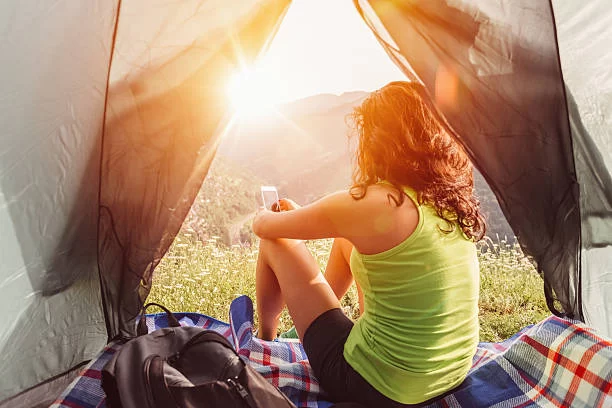Planning a hiking and camping trip in the mountains? Learn essential safety precautions to ensure your adventure is safe and enjoyable. Discover tips for hiking, camping gear, and mountain safety to prepare for your outdoor adventure.

Essential Safety Precautions When Hiking and Camping in the Mountains
- 1. Preparation for the Hike
- 2. Understanding the Mountain Environment
- 3. Proper Gear and Equipment
- 4. Dealing with Weather Conditions
- 5. Maintaining Health and Hydration
- 6. Real Travel Stories and Lessons Learned
- 7. Final Thoughts on Safe Hiking and Camping
1. Preparation for the Hike
Before embarking on a mountain hiking or camping trip, thorough preparation is crucial for ensuring safety throughout your journey. First, research the area you will be visiting, checking for any hazards such as dangerous wildlife, unstable terrain, or weather risks. Choose a route that suits your fitness level, and plan your hike in stages, taking into account your ability to handle the terrain. One piece of advice from hiking enthusiast Alex, who tackled the Andes, is: "Start with a well-thought-out plan, always letting someone know your exact route and expected return time." This is vital to ensure someone can get help in case of an emergency.2. Understanding the Mountain Environment
Mountains present unique challenges, and understanding the environment you’re in is key to staying safe. The altitude can have significant effects on your body, causing altitude sickness. To minimize the risk, try to acclimatize by spending time at a lower elevation before your climb. If you’re heading into remote mountain regions, understanding the flora and fauna of the area can help you avoid dangerous wildlife encounters, such as mountain lions or bears. Understanding the terrain is equally important. Mountain trails may appear easy at first but can turn treacherous quickly, especially after rain or snow. Research trail conditions and note that some paths may be too difficult for beginners, leading to accidents.3. Proper Gear and Equipment
Having the right gear is essential to hiking and camping safely in the mountains. Your gear can be the difference between a safe journey and a dangerous one. Key equipment includes durable, weather-appropriate clothing, such as moisture-wicking layers and waterproof jackets. Invest in sturdy boots that provide support and traction on uneven surfaces. Sarah, a seasoned camper, recalls her experience in the Rocky Mountains: “The weather changed unexpectedly, and my rain gear made all the difference. Never underestimate the power of good equipment in harsh mountain conditions!” Other essentials include a backpack with emergency supplies, a map or GPS device, a first aid kit, and a reliable tent designed for mountain camping. Your equipment list will depend on your specific destination, but always include the basics for survival and navigation.4. Dealing with Weather Conditions
The weather in the mountains can be unpredictable, and sudden changes can make hiking and camping especially dangerous. Before your trip, check the weather forecast for the area, but be prepared for the unexpected. Carry extra layers to deal with temperature fluctuations, as temperatures can drop drastically even in summer. When hiking or camping in the mountains, visibility is often compromised by fog, snow, or rain. If the weather turns bad, it’s important to know when to stop, seek shelter, and wait for conditions to improve. Always keep a weather radio or smartphone app on hand to stay updated on any changes.5. Maintaining Health and Hydration
Your health and hydration are vital for a successful mountain hiking or camping trip. The combination of physical exertion and altitude can quickly dehydrate your body, leading to fatigue, dizziness, or even altitude sickness. Drink plenty of water and carry purification tablets or a filter to ensure a clean water supply. Nutrition is equally important. High-energy snacks like nuts, energy bars, and dried fruit can keep you fueled throughout your hike. Avoid heavy meals that may weigh you down or cause discomfort during physical exertion. It’s also important to take breaks and listen to your body. If you feel dizzy or overly fatigued, stop and rest. Pushing yourself too hard can lead to serious health issues.6. Real Travel Stories and Lessons Learned
Hearing about real experiences from other adventurers can offer valuable insights into the challenges of mountain hiking and camping. For instance, Mark, a traveler who ventured into the Swiss Alps, shared, “I learned the hard way that altitude sickness can sneak up on you. I felt great at first but suddenly had trouble breathing. Taking breaks and drinking water helped, but it was a scare.” Real stories like these highlight the importance of respecting the mountains and being prepared for anything. A little preparation and mindfulness can go a long way in making sure your journey remains safe and enjoyable.7. Final Thoughts on Safe Hiking and Camping
Hiking and camping in the mountains offer unforgettable experiences, but safety must always be your top priority. By preparing adequately, understanding the environment, having the right gear, and maintaining good health and hydration, you can minimize the risks and enjoy your adventure to the fullest. Looking to embark on your own mountain adventure? Consider booking guided tours for more challenging hikes or check out expert recommendations on the best equipment for mountain camping. Adventure awaits, but safety comes first — make sure you're ready for whatever the mountains throw at you!West Chickenbone Lake Campground
Houghton Township, MI, USA
Visit Location PageCatskill MTN Kampground
12268 NY-30, Downsville, NY 13755, USA
Visit Location Page